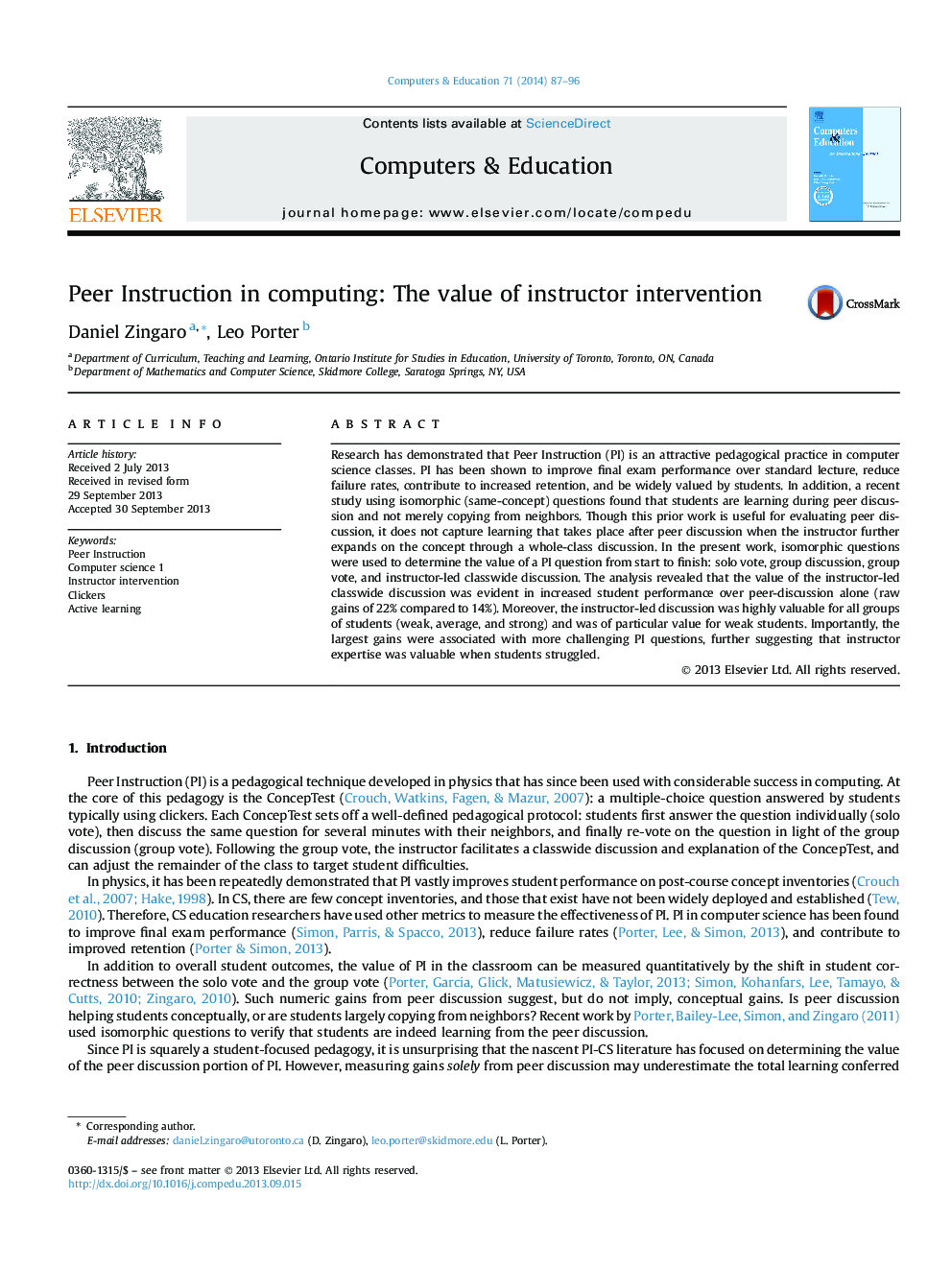| Article ID | Journal | Published Year | Pages | File Type |
|---|---|---|---|---|
| 348439 | Computers & Education | 2014 | 10 Pages |
•Peer Instruction (PI) is valuable for introductory CS students.•Students learn from discussion, but also from instructor lecture.•Difficult questions make best use of class time and instructor expertise.
Research has demonstrated that Peer Instruction (PI) is an attractive pedagogical practice in computer science classes. PI has been shown to improve final exam performance over standard lecture, reduce failure rates, contribute to increased retention, and be widely valued by students. In addition, a recent study using isomorphic (same-concept) questions found that students are learning during peer discussion and not merely copying from neighbors. Though this prior work is useful for evaluating peer discussion, it does not capture learning that takes place after peer discussion when the instructor further expands on the concept through a whole-class discussion. In the present work, isomorphic questions were used to determine the value of a PI question from start to finish: solo vote, group discussion, group vote, and instructor-led classwide discussion. The analysis revealed that the value of the instructor-led classwide discussion was evident in increased student performance over peer-discussion alone (raw gains of 22% compared to 14%). Moreover, the instructor-led discussion was highly valuable for all groups of students (weak, average, and strong) and was of particular value for weak students. Importantly, the largest gains were associated with more challenging PI questions, further suggesting that instructor expertise was valuable when students struggled.
